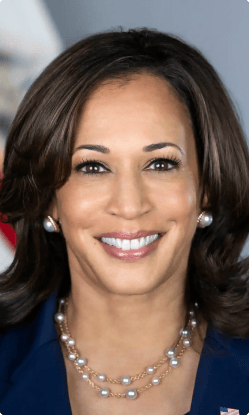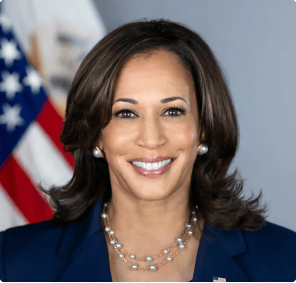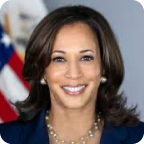

2024 Electoral Map
View ResultUS Election Videos
View All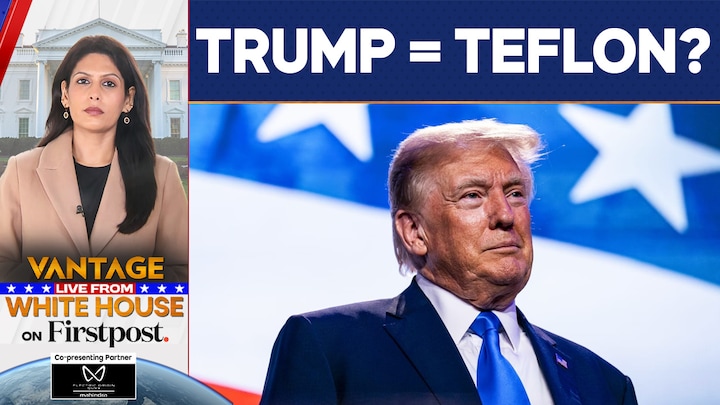
What are Donald Trump's Strengths and Weaknesses? | Vantage with Palki Sharma
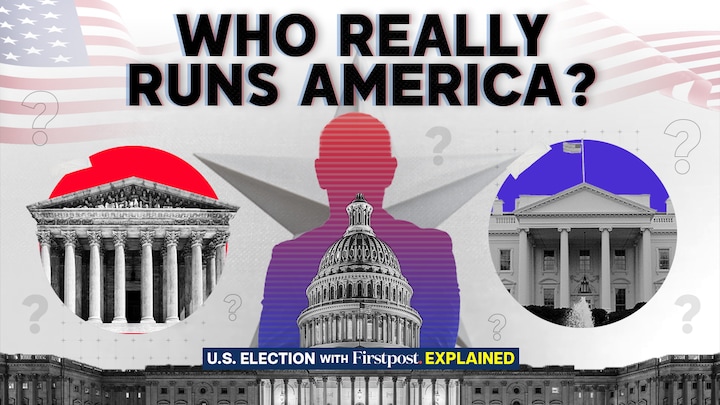
US Election 2024 | Inside the US Government: Who Holds the Reins of Power?
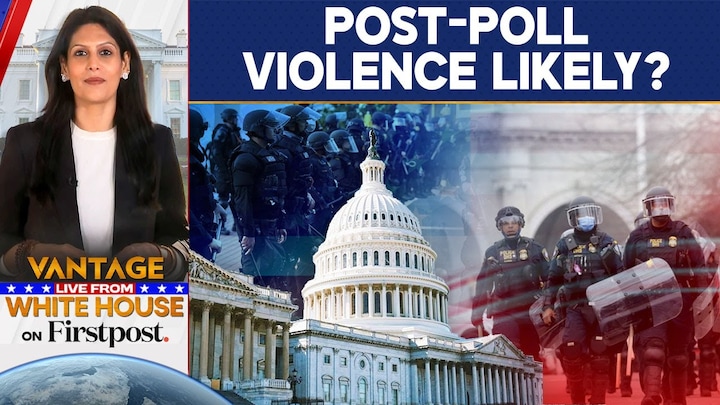
US Election: Washington Beefs Up Security Ahead of Election Day | Vantage with Palki Sharma
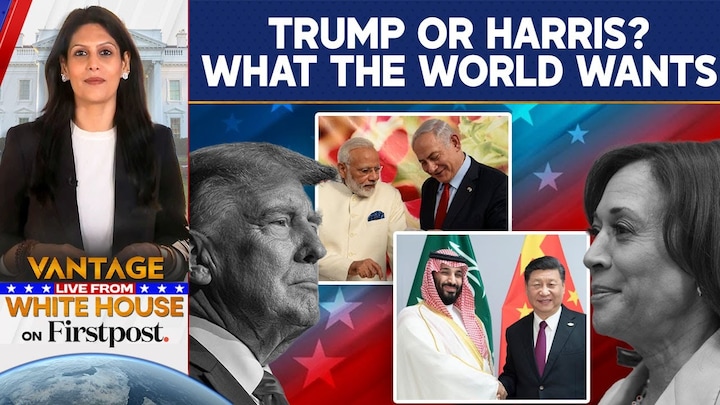
How Will US Election Results Reshape Global Politics? | Vantage With Palki Sharma
History of US presidents
- Joe Biden2021 - Present
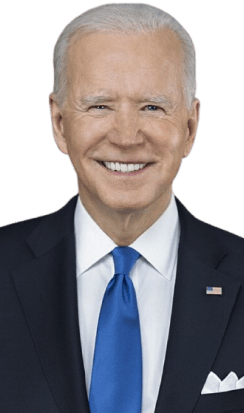
Joe Biden
2021 - Present
The 46th President of the United States was born on November 20, 1942 in the town of Scranton. Biden grew up in Pennsylvania in a large Catholic family. He worked as a prosecutor before diving into politics. In 1972, he would become Senator from Pennsylvania – a post he would hold for nearly four decades.By now, he was married to Neilia Hunter – with whom he would have three children. But tragedy struck soon. Biden’s wife and infant daughter were killed in an accident, while he and his sons survived. Biden briefly considered ending his political career but later changed his mind.Biden had a stellar career in the Senate – serving on multiple high-profile councils including as chair of the powerful Foreign Relations Committee. But he always had one eye set on the ultimate prize – the US presidency.
- Donald Trump2017–2021
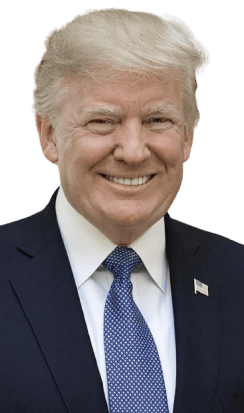
Donald Trump
2017–2021
As 45th President of the United States, critics gave him the moniker of divider-in-chief. America has never had a president like Trump.Ever since he came down that golden escalator in June 2015 to announce his candidacy for president, US politics has been defined by Trump. No candidate has ever taken over a major political party so quickly – or quite so ruthlessly.It would be no stretch to say today that Trump is the Republican Party – and the Republican Party is Trump.Donald John Trump was born on June 14, 1946 to builder Fred Trump and Mary Anne Macleod Trump. Trump was, by all accounts, a difficult child “He was a pretty rough fellow when he was small,” Fred Trump recalled. Those who have been excommunicated from the Trump family have painted them as a dysfunctional bunch.
- Barack Obama2009- 2017

Barack Obama
2009- 2017
Hope and change was Barack Obama’s slogan when he ran for president. While the first Black US president indeed offered hope to millions including many minorities, during his two terms in office, the change part proved to be a little, okay a lot, more difficult.The 44th President of the United States had little experience on the national scene. Indeed, he was a virtual newcomer to the ways of Washington – a stranger in an even stranger land. While Obama ran on healing the divisions of the past, in retrospect, the first Black president in US history was always going to arouse the ire of the worst of the far-right. Barack Obama was born on August 4, 1961 in Hawaii. His parents were Ann Dunham, a white woman from Kansas, and Barack Obama Sr., a Black man from Kenya.
- George Walker Bush2001-2009
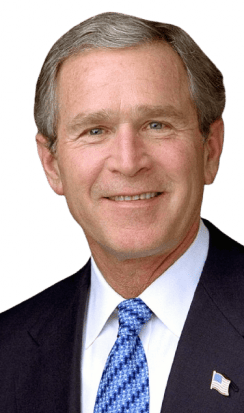
George Walker Bush
2001-2009
Before Donald Trump took office, George W Bush was the most divisive US president of the modern era. Bush was the centre of controversy before he was even sworn into office. The 2000 US election and the outcome – where the Supreme Court essentially handed Bush the presidency by stopping an ordered recount – set the stage for what was to come.The Bush years witnessed arguably the most consequential event of this century – the 9/11 attacks. The day the twin towers crumbled and the invasions of Iraq and Afghanistan afterward had a major impact on both America and the world. Let’s take a closer look at the 43rd President of the United States Bush was born on July 6, 1946 in New Haven Connecticut. His parents were George HW Bush and Barbara Bush. Dubya, as he would later be known, grew up in Texas. Bush went to the Phillips Academy in Andover, Massachusetts.
- William Clinton1993-2001

William Clinton
1993-2001
William Jefferson Clinton, the 42nd President of the United States was born on August 19, 1946, in Hope, Arkansas. Raised in a working-class family, Clinton was marked by ambition early in life, famously shaking hands with US President John F Kennedy as a teen during a trip to Washington, DC.His education path took him through Georgetown University, where he graduated in 1968, to Oxford University as a Rhodes Scholar, and finally to Yale Law School, where he met Hillary Rodham, his future wife and political partner.Clinton began his political career as Arkansas Attorney General in 1976, and just two years later, at age 32, he became one of the youngest governors in the nation’s history. After losing his re-election bid in 1980, he staged a comeback in 1982 and served as governor of Arkansas for another decade.In 1992, Clinton ran for the presidency, portraying himself as a “New Democrat” who could combine liberal social policies with moderate economic approaches. Despite facing allegations of marital infidelity and questions about avoiding the Vietnam draft, his campaign gained momentum.
US Presidential Candidates with Bio


Donald Trump
THE 45TH PRESIDENT OF THE UNITED STATES
RepublicanDonald Trump
THE 45TH PRESIDENT OF THE UNITED STATES
Republican
Donald John Trump was born in Queens, New York, on June 14, 1946. His father, Fred Trump was a successful real estate developer. Trump was educated at the New York Military Academy and the Wharton School of Finance and Commerce at the University of Pennsylvania. In 1971, he took over his father’s real estate company, renaming it the Trump Organization. The business soon became involved in variety of projects, including hotels, resorts, residential and commercial building, casinos, and golf courses.
Read moreUS Election Key Dates
- June 27, 2024First Presidential DebateSeptember 10, 2024Second Presidential Debate
- October 1, 2024Vice-Presidential DebateNovember 5, 2024Election Day
- December 17, 2024Electors cast votes
- January 20, 2025Inauguration day
FAQs
The US presidential election is a complex process involving more than just the popular vote. Voters choose 538 electors, who ultimately decide the next president through the Electoral College. While most states follow a winner-takes-all system, a few use proportional representation. Key swing states can sway results, and despite absentee and early voting, the official winner isn’t declared until Congress certifies the electoral votes Read More
The US presidential race between Donald Trump and Kamala Harris will be decided on November 5 when America votes. But the candidate who wins the most votes, doesn’t necessarily guarantee a victory. That’s’ because of the electoral college. Here’s how it works Read More
US Presidential Election Stories
Trending Topics
Explore the most popular topics and get access to the latest news!
US Presidential Elections 2024
The US presidential election on November 5, 2024, will be a significant moment for America, featuring former President Donald Trump as the Republican nominee and Vice President Kamala Harris as the Democratic nominee, following President Joe Biden's decision not to seek a second term. The stakes are high as the nation faces economic recovery, social division and global uncertainties.
Key dates to watch
US election 2024 date: November 5, 2024
Debates: On 10 September 2024, Trump and Harris clashed intensely over key issues like inflation, abortion, immigration and foreign policy during the high-stakes ABC News presidential debate. With just eight weeks remaining until Election Day, both candidates made their case to win over voters.
Early voting in US election: Early voting for the US presidential election is underway in several states, allowing voters to cast ballots in person or by mail. States are sharing insights on early voting trends, including party affiliation and voter age. Harris' campaign is urging Democrats to embrace early voting, while despite his criticisms, Trump and the Republican Party are also encouraging their supporters to participate.
State of the raceAs the 2024 US presidential election race tightens, polls are becoming a crucial focus for both campaigns. With three weeks remaining, The New York Times’ polling average shows Harris and Trump nearly tied in seven key battleground states, a rare occurrence this late in the election cycle. According to the BBC, Harris has held a slight lead in national polling averages since entering the race in late July. However, national polls may not always reliably predict the final election outcome.
Key swing states to watch in the US presidential election
A swing state is traditionally defined as one that significantly influences the outcome of US presidential elections, where Democratic and Republican candidates have nearly equal support. In the 2024 US election, key swing states will again be crucial in determining the next president. Georgia, Arizona, Michigan, Wisconsin, Nevada, North Carolina and Pennsylvania are among the battlegrounds showing a tight race between Trump and Harris. Winning these states is essential for either candidate to reach the 270 electoral votes needed for victory.
According to US News, Arizona's political landscape shifted dramatically from a Trump win in 2016 to a narrow Biden victory in 2020, breaking a Republican hold on the state since the start of the 21st century. Biden's win in Georgia was historic, marking the first Democratic victory there since Bill Clinton in 1992. Michigan, while generally leaning Democratic, remains highly contested. Despite having the fewest electoral votes among swing states, Nevada is crucial for the presidential outcome. North Carolina, traditionally Republican-leaning, is still a key battleground, while Pennsylvania, despite its Republican leanings, sees fierce competition from both parties. Wisconsin, once a solidly Democratic "blue wall" state in the Rust Belt, became a battleground after Trump’s narrow win in 2016.
Main campaign issues
The 2024 US presidential election is shaping up as a clash of contrasting visions for America, with Trump and Harris focussing on different priorities to engage their core supporters and undecided voters.
Economy: Trump promises to restore economic growth, cut taxes and reduce inflation, while Harris advocates for a more inclusive economy that emphasises healthcare access, wage equality and infrastructure investments.
Immigration and crime: Trump promotes stricter immigration policies and law enforcement to appeal to conservatives whereas Harris seeks comprehensive immigration reform that balances border security with pathways to citizenship.
Social issues: On topics like abortion rights, gun control and voting rights, the candidates are vastly different. Harris supports progressive policies, while Trump adheres to traditional conservative values.
The Electoral College
In US presidential elections, the Electoral College determines the winner, not the national popular vote. This system assigns electoral votes to the 50 states and the District of Columbia based on population. When voters cast their ballots, they are actually selecting a slate of electors for the president. Most states use a winner-takes-all approach, where the candidate winning the popular vote in that state receives all its electoral votes, except for Maine and Nebraska, which distribute theirs proportionally.
A candidate must secure a minimum of 270 electoral votes out of a total of 538 to win the presidency. If the result is a 269-269 tie, the decision goes to the House of Representatives, where each state delegation casts one vote to break the deadlock.
Notably, it is possible for a candidate to win the presidency without winning the popular vote, as seen with George W Bush in 2000 and Trump in 2016. This phenomenon also occurred three times in the 19th century.
After the election, the electors formally cast their votes on December 17 and the results are sent to Congress, where they are officially counted on January 6. The candidate who secures 270 electoral votes or more is inaugurated as president on January 20.
Fundraising and campaign
Vice President Harris has raised over $1 billion in campaign funds since becoming the Democratic presidential nominee in July, according to US media reports. Although her campaign has not confirmed the exact amount, sources cited by The New York Times and NBC News indicate she has surpassed this milestone, including contributions to her campaign and Democratic Party committees.
This impressive fundraising gives Harris a significant financial advantage over her Republican rival, Trump, as they compete in a tightly contested race. In August, Trump and the Republican National Committee raised $130 million, leaving them with $295 million in cash reserves, compared to Harris and the Democrats' $404 million.
Additionally, The New York Times reports that Harris raised $72 million from three late-September events, positioning her to surpass Trump's September fundraising total of $160 million. Meanwhile, Republicans are closing the gap through super PACs, which can raise unlimited funds independently of campaigns. According to OpenSecrets, the largest pro-Trump super PAC has outspent its Harris-supporting counterpart by tens of millions in the 2024 race.
Voter turnout: A decisive factorOne of the defining features of the 2024 US presidential election will be voter turnout, especially in states with a high proportion of minorities, young voters and women. Harris is relying on these demographics to push her over the finish line. Conversely, Trump is counting on strong support from working-class voters and traditional Republicans, especially in rural areas, to mount a comeback.
Role of mail-in votingMail-in voting is anticipated to see robust participation this year, as several states are enhancing accessibility to their voting laws. Former President Trump, who previously opposed this method, seems to have shifted his stance with the introduction of his campaign's grassroots initiative, “Swamp the Vote USA.”
International implications of the US presidential election 2024The 2024 US Presidential Election will significantly influence global geopolitics, particularly regarding relations with major powers like China, Russia and the European Union. Trump has pledged a return to his America First policies, focussing on trade protectionism and US sovereignty. In contrast, Harris is expected to adopt a more multilateral approach, collaborating with allies on climate change, international trade and global security issues.
Final thoughts on 2024 US Presidential Elections
The 2024 US election is set to be one of the most closely monitored in recent years, with Trump and Harris presenting contrasting visions for the country's future amid a deeply divided electorate. As the election date approaches, the race is expected to tighten, with both campaigns targeting undecided voters in key swing states.


















